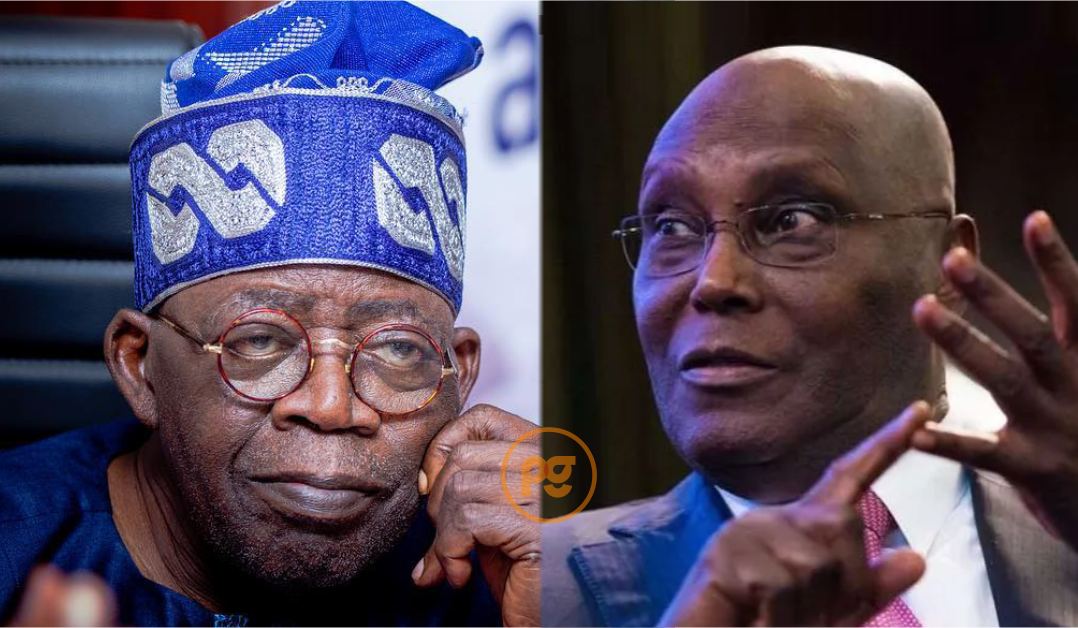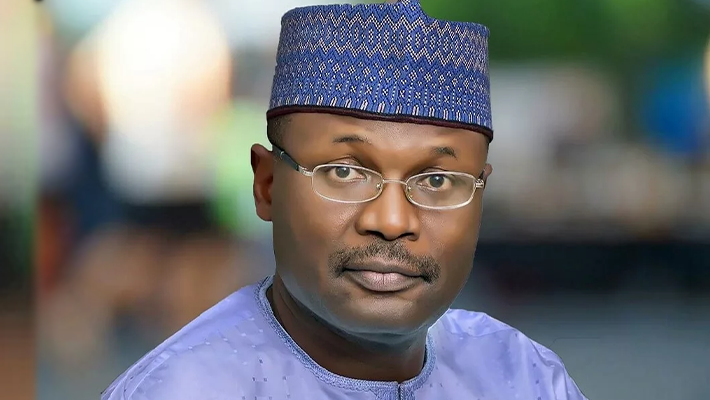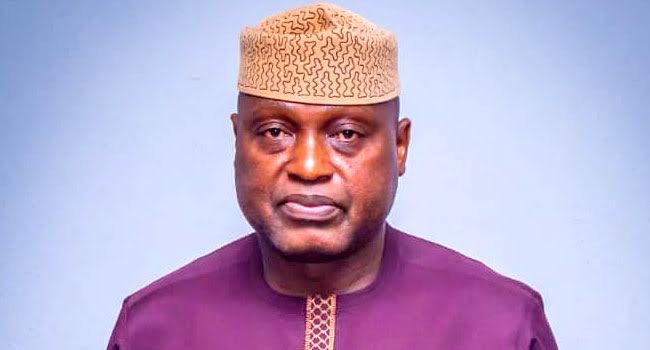Tinubu’s naira floating ill-advised, poorly, hurriedly executed without understanding: Atiku

At a meeting called at his instance on Thursday to address the foreign exchange crisis and the problem of economic downturn, among others, Bola Tinubu failed, yet again, to showcase any concrete policy steps that his administration is taking to contain the crises of currency fluctuation and poverty that face the country.
Rather, he told the country and experts who have been offering ideas on how to resolve the crisis that he and his team should not be distracted and allowed time to continue cooking their cocktail that has brought untold hardship to the people of Nigeria.
I don’t agree with that.
The wrong policies of the Tinubu administration continue to cause untold pain and distress on the economy and the rest of us cannot keep quiet when, clearly, the government has demonstrated sufficient poverty of ideas to redeem the situation.
If the government will not hold on to their usual hubris, there are ways that the country can walk out of the current crisis.
After a careful assessment of the state of our economy at the twilights of the last administration, I knew full well that the economy of the country was heading for the ditch and came up with a number of policy prescriptions that would rescue the country from getting into the mess that we are currently in.
Those ideas, encapsulated in my policy document titled: My Covenant With Nigerians made the following prescriptions:
1. I had signed on to a commitment to reform the operation of the foreign exchange market. Specifically, there was a commitment to eliminate multiple exchange rate windows. The system only served to enrich opportunists, rent-seekers, middlemen, arbitrageurs, and fraudsters.
2. A fixed exchange rate system would be out of the question. First, it would not be in line with our philosophy of running an open, private sector friendly economy. Secondly, operating a successful fixed-exchange rate system would require sufficient FX reserves to defend the domestic currency at all times. But as is well known, Nigeria’s major challenge is the persistent FX illiquidity occasioned by limited foreign exchange inflows to the country. Without sufficient FX reserves, confidence in the Nigerian economy will remain low, and naira will remain under pressure. The economy will have no firepower to support its currency. Besides, a fixed-exchange rate system is akin to running a subsidy regime!
3. On the other hand, given Nigeria’s underlying economic conditions, adopting a floating exchange rate system would be an overkill. We would have encouraged the Central Bank of Nigeria to adopt a gradualist approach to FX management. A managed-floating system would have been a preferred option. In simple terms, in such a system, the naira may fluctuate daily, but the CBN will step in to control and stabilise its value. Such control will be exercised judiciously and responsibly, especially to curve speculative activities.
4. Why control, you may ask.
(i). Nigeria has insufficient, unstable, and precarious foreign reserves to support a free-floating rate regime. Nigeria’s reserves did not have enough foreign exchange that can be sold freely at fair market prices during crises.
(ii). Nigeria is not earning enough US$ from its sales of crude oil because its production of oil has been declining. And,
(iii). Nigeria is not attracting foreign investment in appreciable quantities.
These are enough reasons for Nigeria to seek to have a greater control of the market, at least in the short to medium term when convergence is expected to be achieved.
Tinubu’s new policy FX management policy was hurriedly put together without proper plans and consultations with stakeholders. The government failed to anticipate or downplayed the potential and real negative consequences of its actions.
The Government did not allow the CBN the independence to design and implement a sound FX Management Policy that would have dealt with such issues as increasing liquidity, curtailing/regulating demand, dealing with FX backlogs and rate convergence.
I firmly believe that if and when the Government is ready to open itself to sound counsels, as well as control internal bleedings occasioned by corruption and poorly negotiated foreign loans, the Nigerian economy would begin to find a footing again.
Signed,
Atiku Abubakar.
We have recently deactivated our website's comment provider in favour of other channels of distribution and commentary. We encourage you to join the conversation on our stories via our Facebook, Twitter and other social media pages.
More from Peoples Gazette

Politics
Katsina youths pledge to deliver over 2 million votes to Atiku
“Katsina State is Atiku’s political base because it is his second home.”

Agriculture
Don urges FG to create agric policies to reduce poverty
He recalled that Nigeria witnessed meaningful and impactful agricultural growth development in the 1960s and 1970s.

Africa
UN calls for end to military build-up in Sudan’s El Fasher
Council members also repeated their call for an immediate cessation of hostilities.

Sport
2024 NFL Draft: Cleveland Browns makes history as reality star Ozo Chukwu announces first-ever draft from Nigeria
The 2024 NFL Draft has broken the all-time draft attendance record.

NationWide
Stakeholders urge FG to unbundle INEC ahead of 2027 poll
The stakeholders observed that the processes leading to the 2023 general elections fell below expectations.

Lagos
FG begins demolition of Landmark Beach for Lagos-Calabar highway project
Mr Umahi began the demolition after he inspected kilometres 13, 16 and 20 to ensure a viable way to access the coastal roads without much damage.

Education
203 Ekiti public schools benefit from $25 million World Bank grant
The commissioner said in Ado-Ekiti on Saturday tha the fund is being used to construct new buildings, renovate old ones and erect perimeter fencing.








